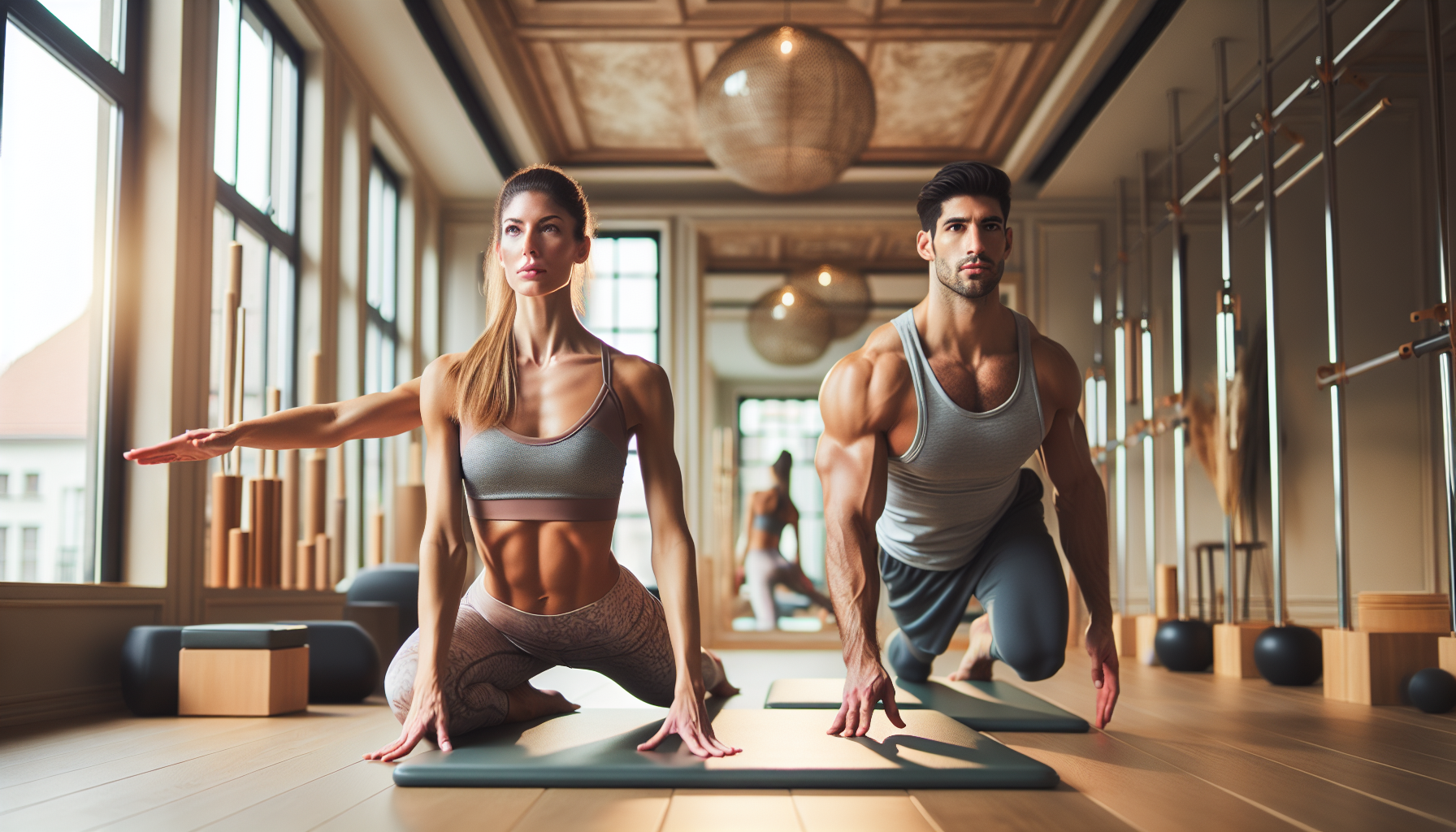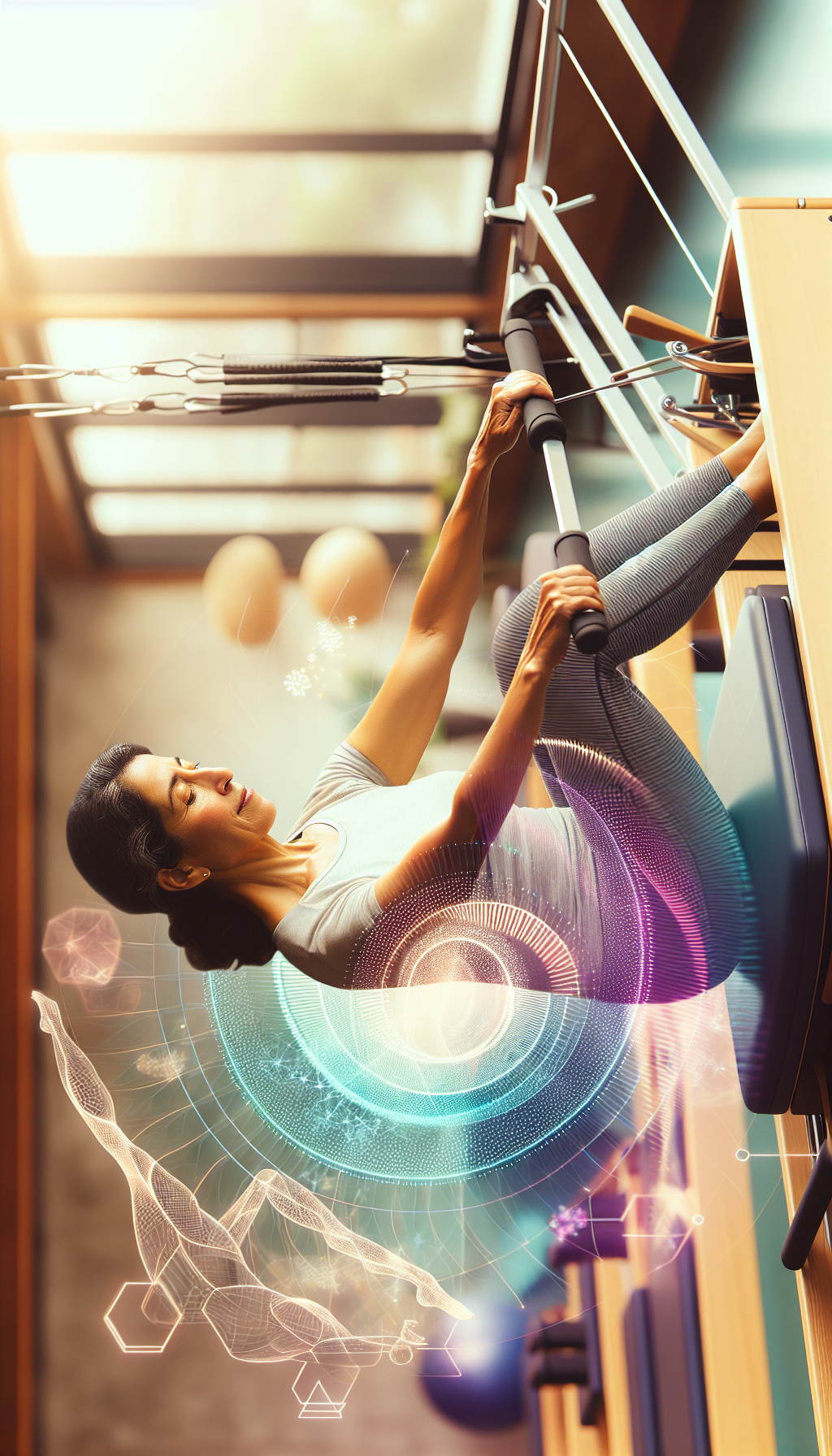Pilates is more than just a fitness trend—it’s a practice that has been helping individuals enhance their physical and mental well-being for over a century. This methodical exercise regimen is particularly renowned for its ability to build core strength, which is essential not only for athletes but for anyone looking to improve their overall fitness and health. The core muscles are pivotal in supporting the spine, influencing posture, and facilitating movement. By engaging in Pilates, individuals can develop a robust core, which is the foundation of a balanced and strong body.
The Core: Your Body’s Powerhouse
The core is often referred to as the "powerhouse" of the body. It consists of the muscles in the abdomen, lower back, hips, and pelvis. Core strength is vital for stability and balance, and it plays a crucial role in almost every movement we make. A strong core can lead to improvements in other areas of fitness and health as well, such as better balance and stability, reduced back pain, and enhanced athletic performance.
Pilates and Core Engagement
Pilates exercises are specifically designed to target the core muscles. Through a series of controlled movements and mindful breathing techniques, Pilates practitioners learn to engage their core effectively. The emphasis on precise movement and alignment helps to ensure that the core muscles are worked thoroughly and correctly, resulting in a stronger, more toned midsection.
The Principles of Pilates
Pilates is built upon several key principles that contribute to its effectiveness in building core strength:
- Centering: This principle focuses on the core (or "center") of the body, which is engaged throughout every Pilates exercise.
- Concentration: Pilates requires a high level of focus to perform the movements with proper form.
- Control: Every exercise is done with complete muscular control, avoiding any wasted movement.
- Precision: Attention to detail ensures that each movement is as effective as possible.
- Breath: Proper breathing not only oxygenates the muscles but also enhances core engagement and efficiency of movement.
- Flow: Exercises are performed in a flowing manner to increase strength and endurance.
Integrating Mind and Body
Pilates is not just about physical movement; it’s a mind-body exercise that requires attention and intention. This integration helps practitioners become more aware of their bodies and the muscles they are engaging, particularly the core, thereby maximizing the benefits of each workout.
Health Benefits Beyond Core Strength
While Pilates is celebrated for its core strengthening benefits, it also offers a wide range of other health advantages:
- Improved Posture: Strong core muscles contribute to better posture, which can alleviate back pain and improve overall body alignment. Further information on the importance of posture in exercise performance.
- Enhanced Flexibility: Pilates promotes a balance of muscle strength and flexibility, leading to improved range of motion.
- Low-Impact Exercise: It is gentle on the joints, making it suitable for individuals of all ages and fitness levels.
- Stress Reduction: The mindful aspect of Pilates can help lower stress levels and promote relaxation.
Building a Pilates Routine for Core Development
To reap the benefits of Pilates for core strength, it is important to develop a consistent routine. Beginners should start with basic exercises and gradually progress to more advanced movements as their strength and technique improve. Incorporating Pilates into your fitness regimen a few times per week can lead to noticeable improvements in core strength and stability.
Complementary Practices for a Holistic Approach
Pilates can be part of a comprehensive fitness strategy when combined with other forms of exercise. For instance, incorporating cardiovascular training can enhance heart health and endurance, while strength training can build muscle mass and bone density. A balanced approach to fitness ensures that all aspects of health are addressed.
Expert Guidance and Personalization
For those new to Pilates, working with a certified Pilates instructor can provide the guidance needed to perform the exercises correctly and effectively. Personalized coaching can help tailor a Pilates program to individual needs, taking into account any limitations or goals. Learn more about the advantages of personalized fitness coaching.
Supporting Resources
To further explore the benefits of Pilates for core strength and overall health, here are some niche and specific resources:
- A detailed analysis of Pilates’ impact on core strength and stability can be found on the Pilates Method Alliance.
- For an in-depth understanding of core anatomy and the benefits of core conditioning, the American Council on Exercise provides valuable insights.
- Research on the effectiveness of mind-body exercises like Pilates in reducing stress is available through the Mind & Body Health Foundation.
Conclusion
Pilates is a powerful tool for developing core strength, enhancing flexibility, and promoting overall well-being. By focusing on controlled, precise movements and breathwork, practitioners can build a solid foundation that supports all other physical activities. Whether you are an athlete looking to improve performance or simply someone seeking a healthier lifestyle, incorporating Pilates into your fitness routine can have transformative effects on your body and mind.
For more information on creating a balanced fitness program, consider reading about creating a balanced fitness program for holistic health.



